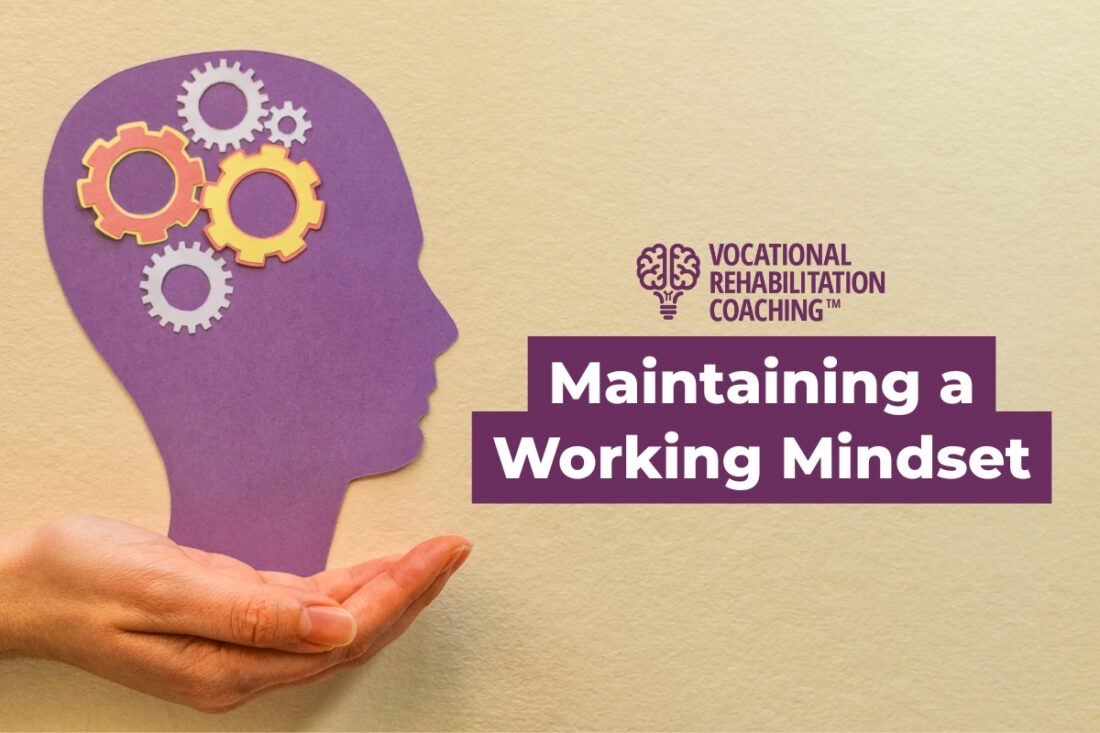Vocational Rehabilitation Coaching: Maintaining a Working Mindset
It is well known in the research literature that work is good for our health, where work provides us with a structure, a sense of normalcy, financial stability, social support and identity. The realities of being off work and living with a long-term condition are harsh. It is no picnic. People feel socially isolated and lonely creating depression related to a lack of social connection. Being ill is financially draining – there are all sorts of hidden costs that people don’t think about. One’s identity shifts from person to patient very quickly and people become fused to their illness, living their life through that lens. One patient said to me once that ‘I am my cancer’ imagine how she must have felt. What is normal shifts too. Endless hospital and medical appointments, later starts to the day and later to bed times shifting circadian rhythms and affecting sleep. With a chance in daily structure, eating and drinking also starts to change resulting in poorer diets and changes in weight. Deconditioning from a lack of exercise and activities of daily living are also a reality impacting on long term illness progression. Thoughts of returning to work are lost in amongst the day to day battle of managing their symptoms.
Sounds gloomy doesn’t it? But it doesn’t have to be this way.
When we started W2W way back when in 2012, health coaching was hardly heard about. We had a vision that drew physical and mental health clinical work together with health behaviour change techniques and vocational rehabilitation. A unique combination blending work and health symbiotically. We wanted to enable people to get back to a place where they can reap the benefits of work. Crucially, we wanted to help them to retain a worker mindset by creating a service that kept work on the table and hope of reaching it with the right type of support.
We started our journey of supporting people with cancer to return to work, helping them to self manage their symptoms within a work context so that they could enjoy a quality of life and get back on the first rungs of the working ladder again. What we didn’t conceptualise at the time was that through health coaching blended with VR we were enabling employees to retain their worker mindset. That is to say, whilst they were going through diagnosis and treatment, they were still about to think about their whole selves, and part of that crucially was work. Macmillan had it right at the time, stating in their seminal work in 2012, that everyone with a cancer diagnosis needed the opportunity to talk about work. Because work is important for health.
Fast forward to 2025, health coaching is much more prolific and there is little regulation of the field or of the title and so we felt the need to differentiate W2W’s specialist approach and arrived at the nomenclature of ‘Vocational Rehabilitation Coaching’. We felt that this title encapsulated our work, pulling together work, health rehabilitation and the application of coaching techniques to facilitate behaviour change. We have created a W2W Academy, honing our knowledge to teach our HCPC registered clinical staff and associates our way of working to ensure that people who are struggling with long term conditions have the opportunity to go about their lives differently, de-fusing from their illness label and engaging actively with their lives, notwithstanding their pain, fatigue, cognitive difficulties or emotional challenges. Such is our success that we have been described as a ‘life line’ by our patients and ‘’innovative strategists’ by our clients. We want to create a space where everyone with a long term condition has the chance to shift their identify from patient to person, improve their quality of life and get back to work when they are ready.


